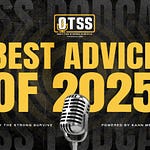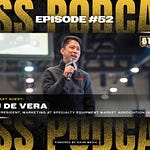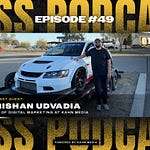Brian Gilman of Warriors & Quiet Waters on “Only The Strong Survive”
A former Marine Colonel, Brian Gilman has a 27-year history in the U.S. military, including two tours in Iraq and Afghanistan. Gilman originally joined the Marines out of college with the intent of only being in the military for four years but quickly found purpose in serving his country. Eventually, Gilman became the Chief of Staff for the Marines Special Operations Command, leading training efforts for the Marines’ elite warriors.
As a fifth-generation native of Montana, Gilman always found solace in fly fishing and spending time outdoors. That connection to nature helped lead him to his current position as Warriors & Quiet Waters CEO. The non-profit uses the vast healing powers of nature to help U.S. veterans recover from both seen and unseen injuries. Gilman joined the organization to maximize its impact and expand its mission beyond assisting veterans to survive their injuries to thriving in life.
In this episode of “Only The Strong Survive,” Gilman talks with host Dan Kahn about his thoughts on leadership in both the military and civilian worlds.
Click on the link above to listen to the in-depth discussion. Here are our top takeaways:
Leadership isn’t simply telling people what to do.
Leadership is about serving and sacrificing for your team.
Leaders can’t get lost in self-doubt or the fear of others.
Letting your emotions take over as a leader is a mistake.
Leadership Goes Beyond Giving Orders
Gilman learned a lot about effective (and ineffective) leadership during his almost three decades in the Marines. The military has its own leadership style; obeying and immediately enacting orders is 100% necessary in combat situations. However, for Gilman, there is so much more to being a truly effective leader than simply telling people what to do.
“It all starts with an understanding of what leaders do. In my view, leaders empower others to do those things that need to be done that they would otherwise be unwilling or unable to do. That is what leaders do,” says Gilman. “They empower others to do hard things. It is not about giving commands or forcing people as a result of your power to do things. It is about inspiring and empowering them to do those hard things that need to be done.”
The Only Privilege of Leadership is Leadership
A modification of a quote from General James Mattis, who was Gilman’s division commander during his tours in Iraq, the new quote speaks directly to one of Gilman’s core takes on leadership. For Gilman, being a leader is not about enjoying the accouterments and luxuries that can sometimes come with a leadership position. Instead, the only privilege of leadership is being a leader.
“A leader, in order to be effective, has to sacrifice for the team. They have to serve the team,” says Gilman. “They are not there to collect the privileges that come with a position of leadership. The only privilege of command is the command. The only privilege of leadership is leadership. In my view, it is really easy to get trapped with all the things that can come with a position of authority.”
Be Wary of Taking Counsel of Your or Your Team’s Fears or Naysayers
Anyone can try to be a leader, but being an effective one is extremely difficult. It takes courage and the ability to make hard decisions that others often cannot. There will always be doubters of you and fears along the way. However, letting your or others' fears and doubts overwhelm you is a surefire way to become an ineffective leader.
“Ultimately, I think that a leader has to be bold. They need the courage and confidence to make the hard decisions that they are there to make,” says Gilman. “At the end of the day, I believe you have to follow your instincts. You should listen to all of the guidance and advice that you can receive from people, but ultimately, you have to make tough calls.”
Don’t Let Your Emotions Take Over
Leaders can have big egos, but being humble enough to learn from your mistakes is vital. According to Gilman, his biggest mistake in the past was to let his emotions take over. Leaders are people too and have bad days like everyone, but letting those emotions cloud decisions often leads to poor ones being made.
“I think the biggest mistake I have made from a leadership perspective is when I lost sight of my framework. I am very Type A, and I like getting things done quickly and solving hard problems and challenges,” says Gilman. “When I don’t show up as my best self, what that looks like is I become overbearing, I don’t listen to others and I take over. All those things that my framework says I shouldn’t do. When I think of the biggest mistakes I have made as a leader, it is because of some outside pressures I had or because I was having a bad day or something like that.”












